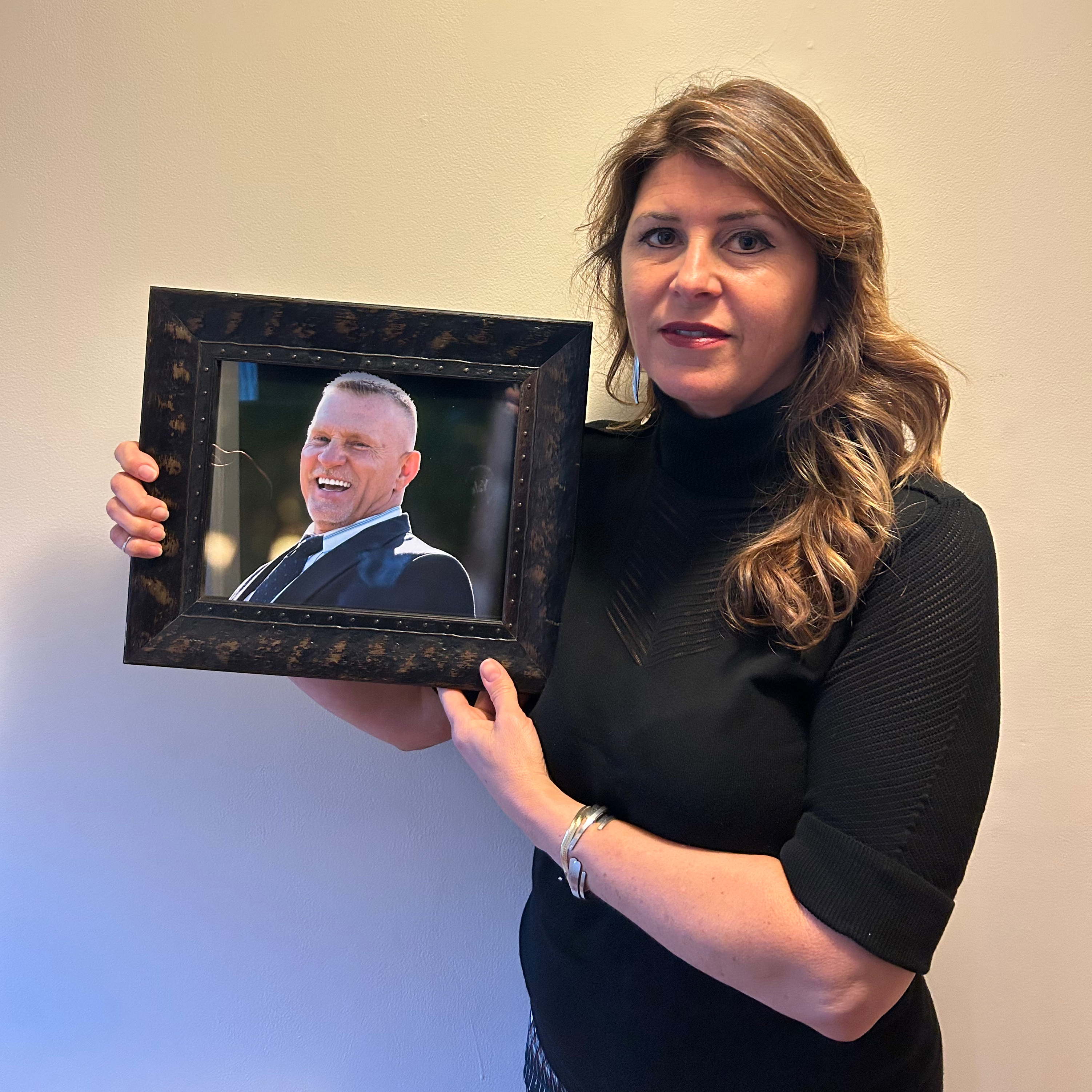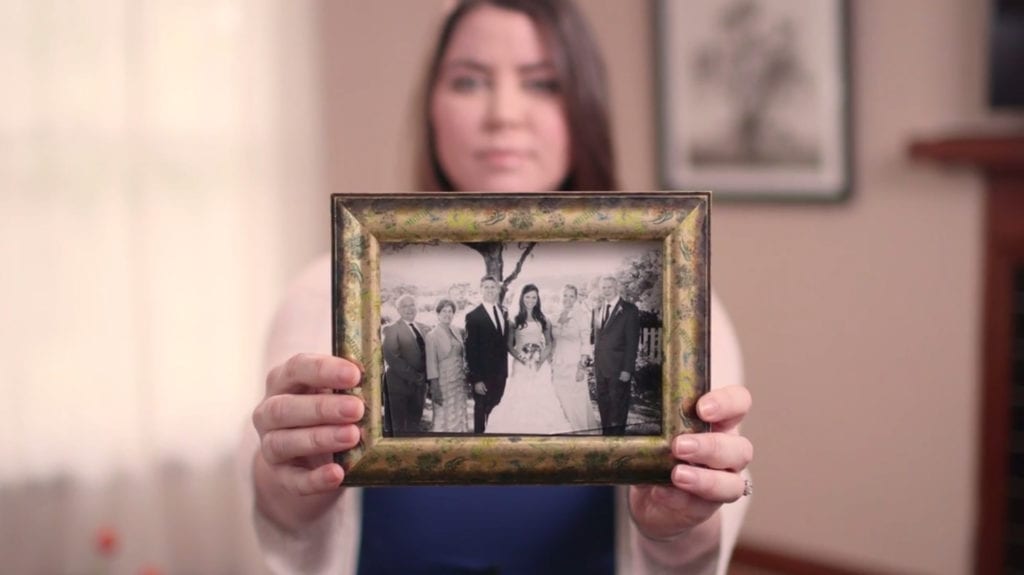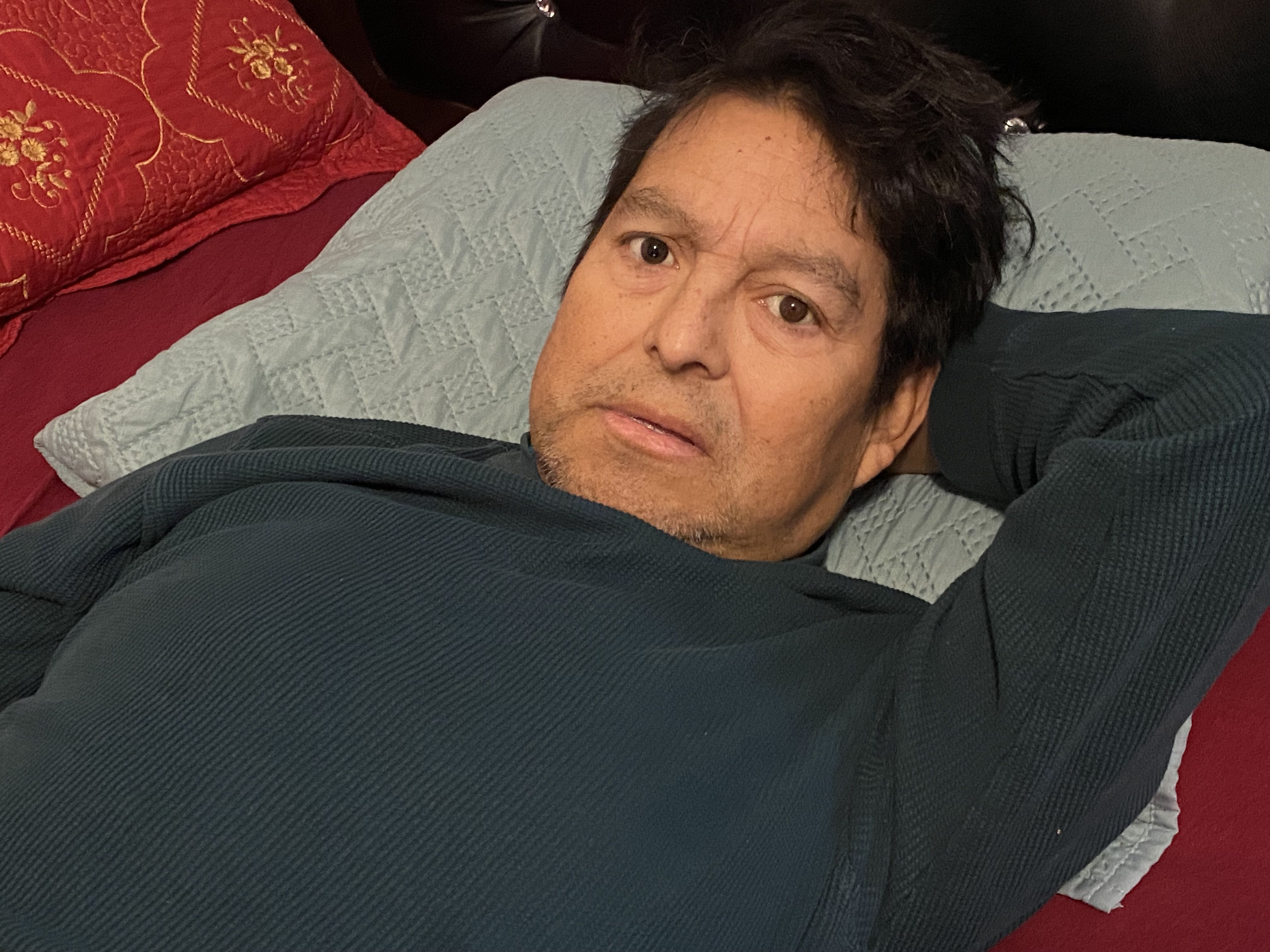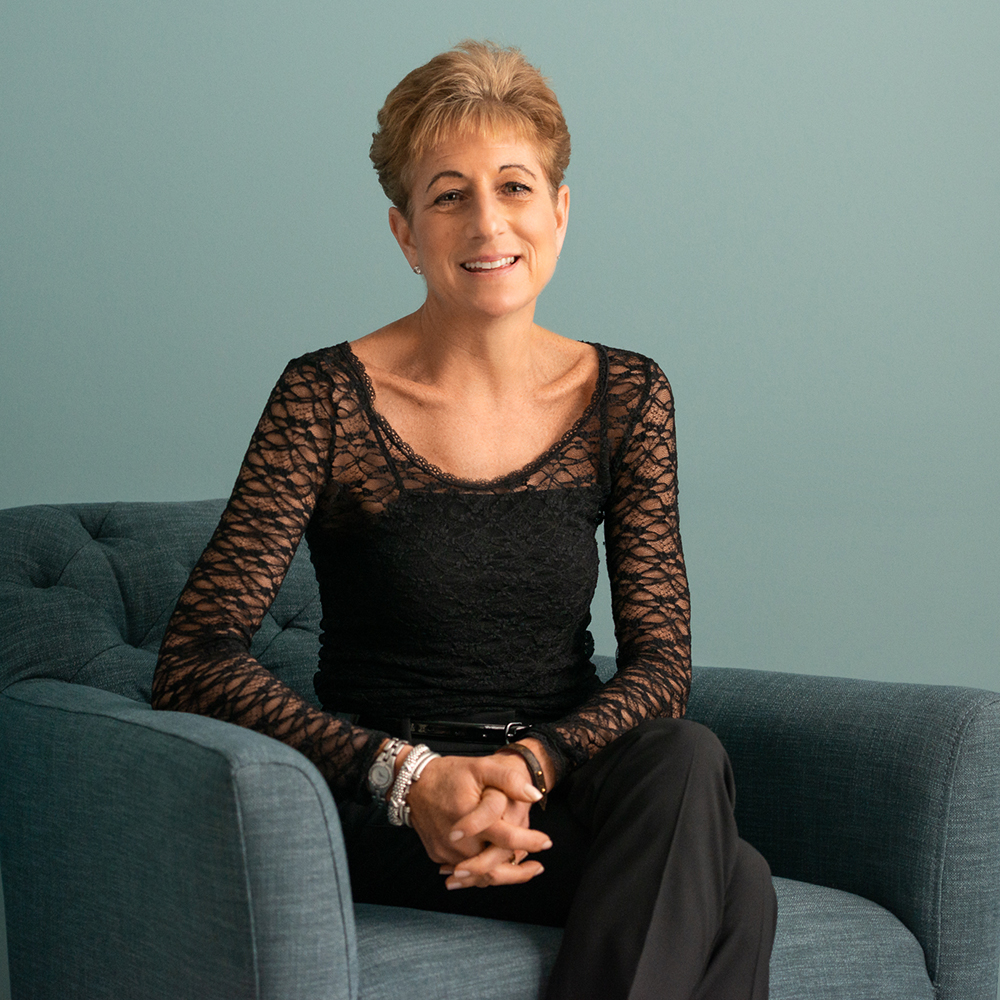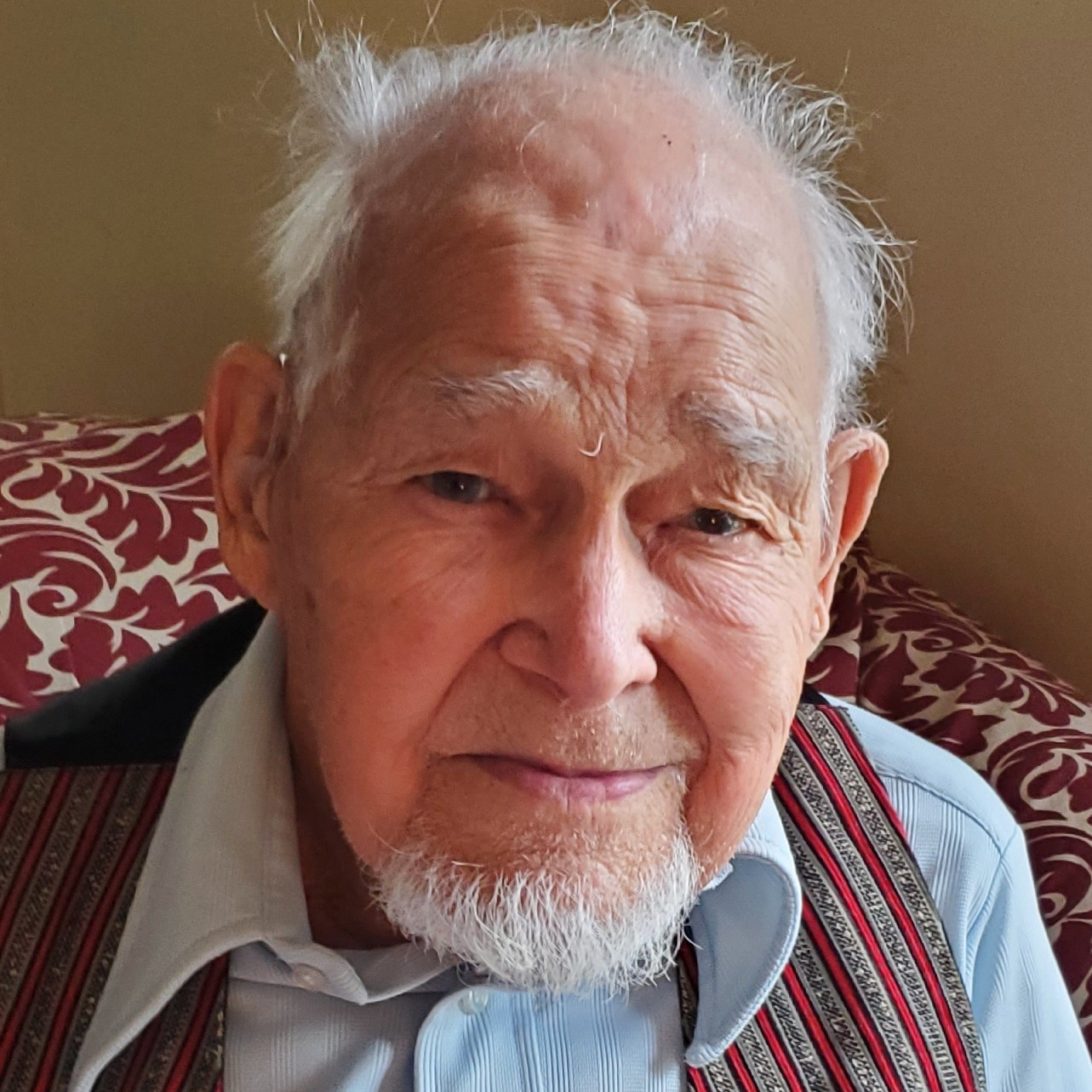Jennifer shared her story in November of 2022.
When Mike and I broke the news to our children that Mike had ALS, our youngest asked, “How long are you going to live until you die?” Mike drew a breath. “We don’t know,” he said. “Sometimes it’s two or three years; sometimes it’s five years. We’re just going to try to live every day.”
That’s what Mike wanted. He wanted to live his life to the fullest, to spend as much time as he could with the kids, watching movies, playing football, doing everything he could until he couldn’t do it anymore. And when that time came, he wanted to be able to go out on his own terms.
He wanted the option of medical aid in dying.
Mike and I met at the gym. He was a tough cookie with a rough upbringing, a construction worker and union representative who got up at 4 a.m. every day and rode his Harley Davidson every chance he got. He had blonde hair, blue eyes — not my type at all. But he just grew on me. He was funny and engaging. He could fix things in a way that most people couldn’t. He jumped to help people; in 2009, he ran into a burning house to rescue our 82-year-old neighbor. I remember realizing that Mike was secretly a softie. He just didn’t often show it.
After being together for nearly a decade, we got married on September 29, 2013.
Mike was meaty with big hands, and in the weeks after the wedding one of the muscles in his hand just sort of caved in. He started researching online and came to me to say, “I think I have ALS.” I figured he was overthinking things. But thankfully Mike had a neurologist he saw regularly because of migraines he suffered due to a motorcycle accident years earlier. He went straight to his doctor, who sent him to Yale.
We were together when the doctor told Mike it was indeed ALS. It was devastating. We both cried — and I think I had seen Mike cry just twice up to that point. We had been married a little over two months.
The doctor told us that because Mike was very muscular, his prognosis was a little longer than most people, probably three to five years. We got six. In that time, we traveled, did a lot of bucket-list stuff. Mike’s brother and his husband took us on this amazing trip to Bora Bora. Having coached all four of the boys in football and his daughter in softball, Mike was determined to continue coaching our youngest son, even though it was very hard on Mike; during the cold and rainy days of football season, his hands would seize up.
As time went on, Mike lost more and more control of his hands. He couldn’t zip up a zipper and struggled to lift a cup. His head got heavy. One morning, he tried to take the motorcycle out with our oldest son, Johnny, and they both came back five minutes later, this look of death on their faces. Johnny said, “Dad dropped the bike.” Mike never rode again.
At the beginning, Mike’s attitude had been that somehow he would be the first exception to the rules of ALS; he would beat this terminal disease. But around year five, he said, “I don’t need to see the neurologist anymore. I’m just a pincushion at this point.” He had lost so much quality of life. He had tried to white-knuckle his way through this disease, but everything was falling apart.
He’d get winded very easily, panic and retreat to the bedroom with his BIPAP mask. His breathing was often labored. He’d take a breath, and then there would be a long pause; he would finally breathe again. It was like watching him die a thousand times over.
Mike felt satisfied with the life he had lived and wanted to die without fear or pain. He looked into moving our family to a state where medical aid in dying was authorized, but it would have been such an undertaking: uprooting our family, selling our house, finding a new home, new doctors. With five kids in our house, sometimes just going to a football game was a lot.
Mike, like myself, was very Catholic. He believed God does not want us to suffer and that we should be able to avail ourselves of medical interventions that help us, including aid in dying for terminally ill people. In 2018, he decided to testify before the Connecticut Legislature about the importance of this option.
It wasn’t easy for Mike going to the Capitol. When you’re physically weak and exhausted, getting there and spending a full day advocating is a fight. But he did it. His words at the time he testified:
“My doctor tells me I have about two years left to live, as this disease slowly takes everything from me … I will slowly die of asphyxiation. There’s no cure for what I have. The progression of this disease on my body is inevitable. It’s a constant nightmare.”
He was right: On July 15, 2019, struggling for each breath, Mike died of asphyxia. It was a nightmare.
Mike had been on hospice for a couple months. It was really horrible for him, the fight to breathe, gasping for air. He was exhausted and filled with angst and anger knowing that he had to just wait until he stopped breathing with our 10-year-old son in the house.
The day before our son’s birthday, I came home, heard Mike breathing raspily in the bedroom, and went to sleep on the couch. I woke up suddenly at 5:35 a.m. and knew he was gone. I went into the bedroom and he wasn’t breathing. I waited, thinking of that seemingly eternal pause between breaths. But another breath never came. He had turned gray.
Mike would have been much more at peace knowing that he was in control and that he could do this any day he wanted. Having had a difficult childhood, he loved being at home with our family. If he had had the option of medical aid in dying here in Connecticut, we could have invited everyone over, Mike would have been the center of attention — he would have loved it — and he would have given a little speech. It would have been an end that honored who Mike was and the life he lived.
Now when I talk to people about Mike, and about his fight for the option of medical aid in dying, I ask them what they enjoy doing and what they want the end of their lives to look like. No one wants a death that is labored and drawn out. When someone, like Mike, is at the end of their life, why can’t they go out the way they want, their last days full of love and fun and food and family? That’s all we’re asking for.


